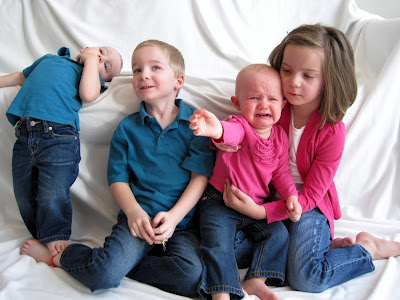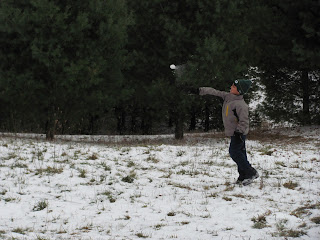Last week, I received one of those phone calls that was not unexpected but yet was still a shock: a family member, sick from cancer and in hospice care only a short time, had passed away. And so I crawled back out of bed at 10:30 p.m., and started a load of laundry, then cracked open the laptop and began sending the emails that would extricate us from our various activities and responsibilities over the weekend. And then I lay awake most of the night, staring at the ceiling, contemplating how I would tell my boys in the morning that their uncle, only a few years older than me and their dad, was gone.
I
wrote about this a couple of years ago for SavvySource, when my grandfather passed away. But he was 93 years old, had been ill and fragile for years, and my kids didn't really know him that well, other than as that old guy we went to visit sometimes in the nursing home. But it's different when the person who has passed is younger.
One thing I can tell you when a situation like this comes up, is don't be afraid to talk about it with kids. Tell them what you know, and then just sit back and listen. Let them ask questions, and have simple, easy answers. Second, be in contact with teachers, neighbors, friends who may be around when your child is grieving. Kids can act out at school, fall off on homework, other things that teachers won't understand if they don't know the root cause. I had a long conversation with the counselor at my boys' elementary school, and she had some good resources, like the book
Lifetimes, and Maria Shriver's book
What's Heaven. Lifetimes is more about the lifecycle of nature, which is a very non-emotional approach. Shriver's book is specifically about a little girl and her mom having a conversation about her grandmother who had died, and is not only more emotional, but is based on Judeo-Christian concepts of Heaven and God.
I think the best thing I did was to tell my kids what was going to happen. That we were going to the airport, getting on a plane, and going to visit their cousins and their grandparents. That there would be two different funerals, one in a church, and one in a cemetery. That lots of people would be sad and maybe even crying. That they would meet lots of people for the first time. That it would be hard and exhausting, but that they would get to spend a lot of time playing the Wii and distracting their cousins from their sadness.
Now we are back to work, to school, to our own lives. But my oldest came home from school with a giant sympathy card that his class had made, to help him feel better. It did. Sometimes it's the little things that get you through.






















